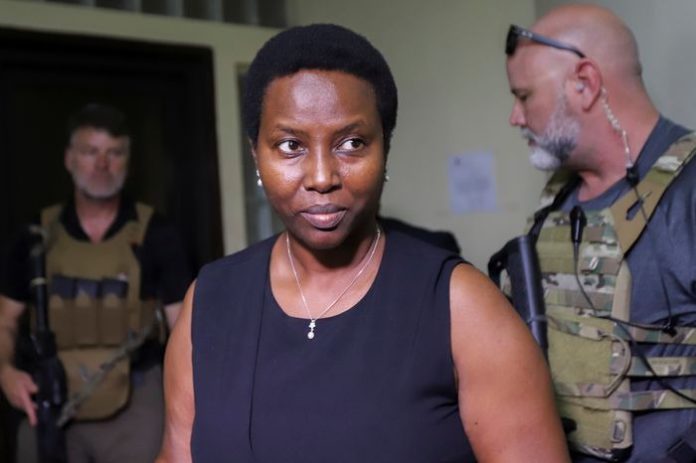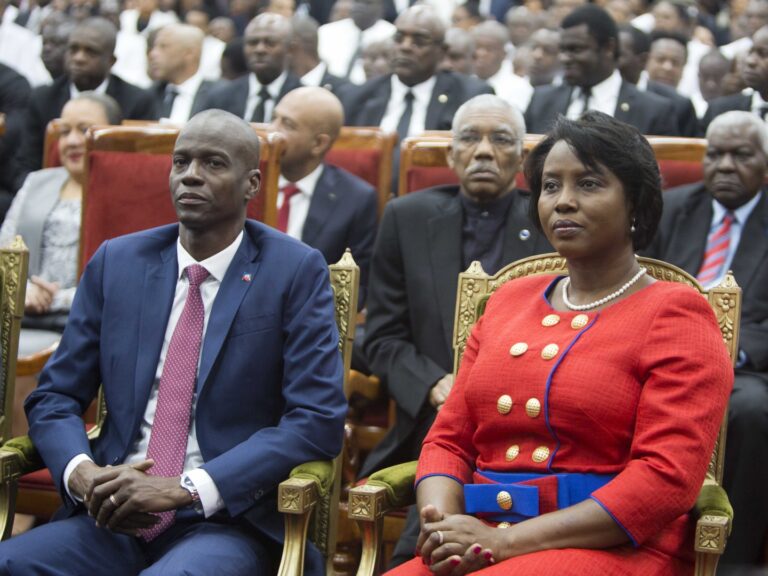After a thorough investigation into the tragic assassination of former Haitian President Jovenel Moïse, a judge in Haiti has charged Martine Moïse, the widow of the late leader. This significant development in the case, which unfolded on July 7, 2021, implicates Martine Moïse in connection with the events that led to her husband’s untimely death.
This recent twist follows a meticulous two-year probe into the high-profile case, where Moïse was fatally shot at his private residence on the outskirts of Port-au-Prince by a group primarily composed of Colombian mercenaries.
Martine Moïse, who sustained injuries during the attack that claimed her husband’s life, is among numerous individuals charged as a result of the extensive investigation. The charges against her include “complicity and criminal association,” as detailed in a leaked legal document acquired by a Haitian news outlet. Moïse or her legal representatives have yet to issue specific comments regarding the charges.
Nevertheless, Martine Moïse has taken to social media recently to denounce what she perceives as “unjust arrests” and an ongoing “persecution.” Her current whereabouts remain undisclosed.

The leaked 122-page legal document from the Haitian news outlet outlines accusations against Moïse and 50 other suspects. It alleges that her statements following her husband’s murder were inconsistent, raising doubts about her credibility. Among the evidence cited is a statement from Lyonel Valbrun, former secretary-general at Haiti’s National Palace, who claims that Moïse visited the palace two days before the assassination and spent several hours removing items.
Valbrun further alleges that Moïse contacted him on the same day, expressing discontent with her husband’s presidency and implying foreknowledge of the impending events. Another suspect, former Haitian Justice Ministry official Joseph Felix Badio, accuses Moïse of plotting to remove her husband from power in collusion with then-Prime Minister Claude Joseph.
Claude Joseph, who also faces charges of conspiracy and criminal association, refutes any involvement and instead accuses current Prime Minister Ariel Henry of targeting him and Moïse. Joseph contends that Henry was the primary beneficiary of President Moïse’s murder and criticizes the investigation’s handling.
Despite reports of phone conversations between Ariel Henry and one of the suspects shortly after the assassination, Judge Walther Wesser Voltaire has not indicted Henry. Henry maintains that he has no recollection of receiving such a call and dismisses allegations linking him to Moïse’s murder as “fake news.”
In addition to Haitian authorities, investigations into Moïse’s assassination have been underway in the United States, resulting in four individuals receiving life sentences for their roles in the conspiracy.
The recent charges against Martine Moïse underscore the ongoing complexity and intrigue surrounding the assassination of President Jovenel Moïse, a case that continues to captivate both Haiti and the global community.


